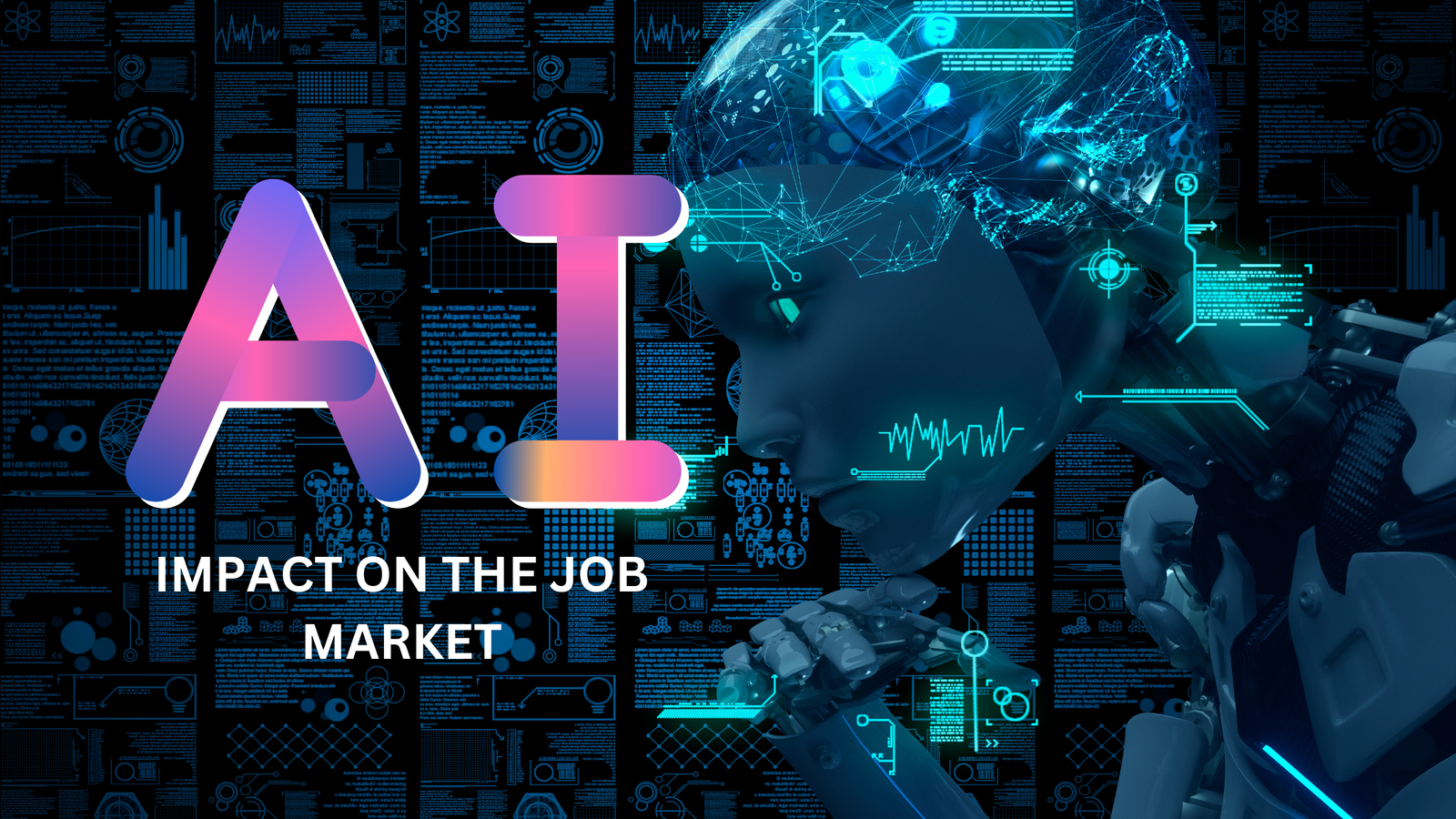With the rapid advancement of technology, automation and AI (Artificial Intelligence) have been playing a significant role in many industries, including manufacturing, finance, healthcare, and even education. While automation and AI have brought about many benefits, there are also concerns about their impact on the job market. This article will explore the effects of automation and AI on the job market, including the types of jobs that are most vulnerable, how workers can adapt to these changes, and the role of education in preparing workers for the future.
Introduction
Automation and AI are transforming the way we live and work. From self-driving cars to virtual assistants like Siri and Alexa, technology has made our lives easier and more convenient. However, the rise of automation and AI has also raised concerns about the future of work. As machines become increasingly intelligent and capable of performing complex tasks, many fear that they will replace human workers and lead to widespread job loss.
What is Automation and AI?
Before we delve deeper into the impact of automation and AI on the job market, let’s define what they are. Automation refers to the use of machines, software, or other technologies to perform tasks that were previously done by humans. This can include anything from assembly line robots to chatbots that answer customer service inquiries. AI, on the other hand, refers to the ability of machines to perform tasks that would normally require human intelligence, such as visual perception, speech recognition, and decision-making.
The Impact of Automation and AI on the Job Market
There is no doubt that automation and AI are already having a significant impact on the job market. According to a study by the McKinsey Global Institute, up to 800 million jobs could be displaced by automation and AI by 2030. While some jobs will be completely automated, others will be transformed as machines take on certain tasks, leaving humans to focus on higher-level work that requires creativity, problem-solving, and interpersonal skills.
The Jobs Most Vulnerable to Automation and AI
While automation and AI will impact many industries, some jobs are more vulnerable than others. According to a report by the World Economic Forum, the jobs that are most at risk of being automated include data entry clerks, telemarketers, and assembly line workers. Jobs that require repetitive tasks or involve routine decision-making are also at risk.
For example, jobs in healthcare, education, and the arts are less vulnerable to automation, as they require skills that machines are not yet capable of replicating.
How Workers Can Adapt to These Changes
As automation and AI continue to transform the job market, workers will need to adapt to these changes to stay competitive. One way to do this is by developing skills that are in high demand, such as coding, data analysis, and project management. Workers can also focus on developing their interpersonal skills, as machines are not yet capable of replicating the empathy and emotional intelligence that humans possess.
Another way workers can adapt to these changes is by being flexible and willing to learn new skills. As machines take on more tasks, workers will need to be able to adapt to new roles and responsibilities. This may mean taking online courses or participating in training programs to learn new skills.
The Role of Education in Preparing Workers for the Future
Education will play a crucial role in preparing workers for the future of work. As machines become increasingly intelligent and capable of performing complex tasks, workers will need to have the skills and knowledge to work alongside them. This means that education and training programs will need to focus on developing skills that are complementary to those of machines, such as creativity, problem-solving, and interpersonal skills.
At the same time, education and training programs will also need to focus on developing technical skills that are in high demand, such as coding, data analysis, and robotics. This will enable workers to remain competitive in a job market that is increasingly being transformed by automation and AI.
Another important aspect of education is lifelong learning. As machines continue to evolve and new technologies emerge, workers will need to continuously update their skills and knowledge to stay relevant. This means that education and training programs will need to be designed with flexibility in mind, allowing workers to learn new skills at their own pace and on their own schedule.
Conclusion
Automation and AI are transforming the way we work, and their impact on the job market is already being felt. While some jobs will be completely automated, others will be transformed as machines take on certain tasks, leaving humans to focus on higher-level work that requires creativity, problem-solving, and interpersonal skills. To adapt to these changes, workers will need to develop new skills and be willing to continuously learn and adapt. Education and training programs will play a crucial role in preparing workers for the future of work.
FAQs
- Will all jobs be replaced by automation and AI?
- No, not all jobs will be replaced by automation and AI. While some jobs are more vulnerable than others, there will always be a need for human workers to perform tasks that machines are not yet capable of doing.
- What types of skills will be most in-demand in the future job market?
- Skills that are complementary to those of machines, such as creativity, problem-solving, and interpersonal skills, as well as technical skills such as coding, data analysis, and robotics.
- How can workers adapt to the changes brought about by automation and AI?
- Workers can adapt to these changes by developing new skills that are in high demand, being flexible and willing to learn new skills, and focusing on developing their interpersonal skills.
- How can education and training programs prepare workers for the future of work?
- Education and training programs can prepare workers for the future of work by focusing on developing skills that are complementary to those of machines, such as creativity, problem-solving, and interpersonal skills, as well as technical skills that are in high demand.
- Will education and training programs need to change to adapt to the future of work?
- Yes, education and training programs will need to be designed with flexibility in mind, allowing workers to learn new skills at their own pace and on their own schedule, and to continuously update their skills and knowledge as new technologies emerge.

